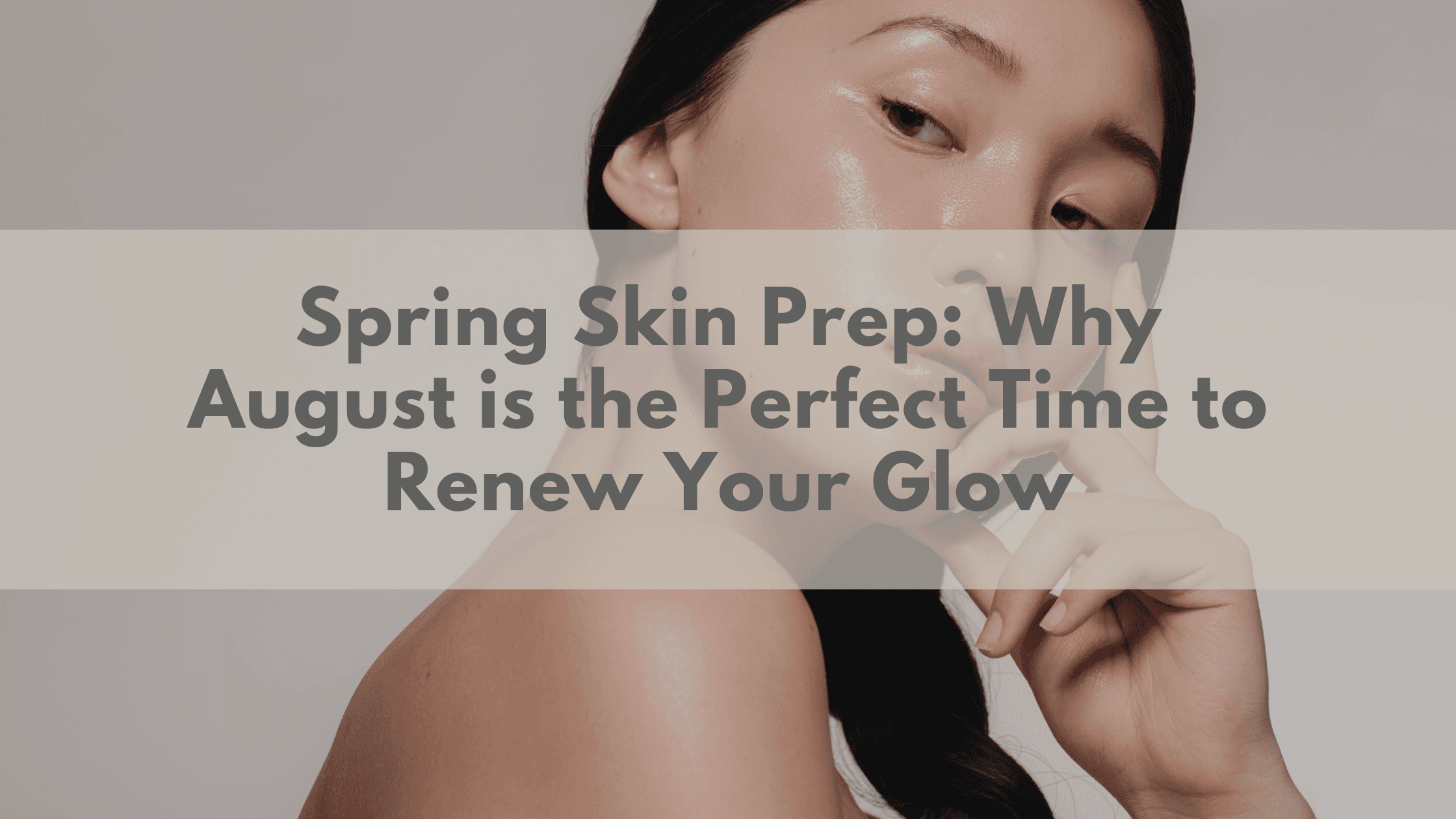When you invest in cosmetic treatments, you want to ensure that the results last as long as possible. Following proper skin care tips post-treatment is crucial to maintaining and prolonging the benefits of your cosmetic procedures. Whether you’ve had a laser treatment, injectables, or a facial peel, adhering to a good skin care regimen can make all the difference in keeping your skin looking fresh and radiant. In this article, we will share top skin care tips to help you maintain your results post-treatment and get the most out of your investment.
Importance of Post-Treatment Skin Care
Proper skin care tips post-treatment can significantly enhance the longevity of your cosmetic results. Treatments like laser therapy, dermal fillers, and chemical peels can make your skin more sensitive and prone to damage if not cared for correctly. Following post-treatment care instructions ensures that your skin heals properly and that you maintain the improvements achieved through your cosmetic procedures.
Benefits of Adhering to Post-Treatment Skin Care Tips
- Prolonged Results: Proper care helps extend the benefits of your treatment.
- Enhanced Healing: Reduces the risk of complications and promotes faster healing.
- Improved Skin Health: Maintains overall skin health and appearance.
Gentle Cleansing
After any cosmetic treatment, it is essential to cleanse your skin gently. Use a mild, fragrance-free cleanser to remove dirt, oil, and makeup without irritating your sensitive skin. Avoid using hot water, as it can strip your skin of natural oils and exacerbate any post-treatment sensitivity.
Tips for Gentle Cleansing
- Use lukewarm water.
- Pat your skin dry with a soft towel, don’t rub.
- Avoid exfoliating cleansers until your skin has fully healed.
Moisturising Regularly
Keeping your skin hydrated is one of the most important skin care tips post-treatment. Use a gentle, hydrating moisturiser to prevent dryness and promote healing. Look for products containing ingredients like hyaluronic acid, glycerin, and ceramides, which help to maintain the skin’s moisture barrier.
Choosing the Right Moisturiser
- For Dry Skin: Opt for a richer, cream-based moisturiser.
- For Oily Skin: Use a lightweight, non-comedogenic gel moisturiser.
- For Sensitive Skin: Choose a fragrance-free, hypoallergenic product.
Sun Protection
Sun protection is crucial following any cosmetic treatment. Your skin is more vulnerable to UV damage post-treatment, which can lead to hyperpigmentation and other complications. Applying a broad-spectrum sunscreen with at least SPF 30 is essential, even on cloudy days.
Best Practices for Sun Protection
- Apply sunscreen every morning, even if you’re indoors.
- Reapply every two hours if you’re outside.
- Wear a wide-brimmed hat and sunglasses for added protection.
Avoiding Harsh Products
Post-treatment, it is essential to avoid harsh skin care products that can irritate your skin. This includes products with alcohol, retinoids, alpha hydroxy acids (AHAs), and beta hydroxy acids (BHAs). Stick to gentle, soothing products until your skin has fully recovered.
Harsh Ingredients to Avoid
- Alcohol: Can dry out and irritate the skin.
- Retinoids: May be too strong for sensitive post-treatment skin.
- AHAs/BHAs: Can cause irritation and peeling.
Staying Hydrated
Hydration is not just about applying moisturiser; it also involves keeping your body hydrated. Drinking plenty of water helps to keep your skin hydrated from within and supports the healing process. Aim to drink at least eight glasses of water a day to maintain optimal skin health.
Tips for Staying Hydrated
- Carry a water bottle with you to encourage regular drinking.
- Include hydrating foods in your diet, such as fruits and vegetables.
- Limit caffeine and alcohol intake, as they can dehydrate the skin.
Healthy Diet
A healthy diet rich in vitamins and antioxidants can support skin health and recovery post-treatment. Incorporate foods that are high in vitamin C, vitamin E, and omega-3 fatty acids, which help to repair and protect the skin.
Skin-Boosting Nutrients
- Vitamin C: Found in citrus fruits, berries, and leafy greens.
- Vitamin E: Found in nuts, seeds, and green leafy vegetables.
- Omega-3 Fatty Acids: Found in fatty fish, flaxseeds, and walnuts.
Follow-Up Appointments
Regular follow-up appointments with your cosmetic practitioner are crucial for monitoring your skin’s progress and addressing any concerns. Your practitioner can provide personalised skin care tips post-treatment and recommend products or treatments to enhance and maintain your results.
Benefits of Follow-Up Appointments
- Monitoring Progress: Ensures your skin is healing properly.
- Personalized Advice: Receive tailored skin care recommendations.
- Early Intervention: Address any issues before they become serious.
Avoiding Picking or Scratching
It’s common to experience some peeling or flaking after certain treatments. However, it is crucial to resist the urge to pick or scratch your skin. Doing so can lead to scarring and prolong the healing process. Allow your skin to heal naturally, and use a gentle exfoliator once your skin is fully recovered, if needed.
How to Manage Peeling Skin
- Use a Hydrating Serum: Helps to soothe and hydrate peeling skin.
- Apply a Gentle Exfoliator: Only once your skin has fully healed.
- Avoid Makeup: If your skin is still peeling, to prevent further irritation.
Keeping Your Hands Clean
Always wash your hands before touching your face, especially post-treatment. This helps to prevent infection and ensures that your skin remains clean and free from bacteria.
Hand Hygiene Tips
- Use soap and water to wash your hands thoroughly.
- Avoid touching your face unnecessarily.
- Keep hand sanitiser with you when you’re out and about.
When you invest in cosmetic treatments, you want to ensure that the results last as long as possible. Following proper skin care tips post-treatment is crucial to maintaining and prolonging the benefits of your cosmetic procedures. Whether you’ve had a laser treatment, injectables, or a facial peel, adhering to a good skin care regimen can make all the difference in keeping your skin looking fresh and radiant. In this article, we will share top skin care tips to help you maintain your results post-treatment and get the most out of your investment.
Importance of Post-Treatment Skin Care
Proper skin care tips post-treatment can significantly enhance the longevity of your cosmetic results. Treatments like laser therapy, dermal fillers, and chemical peels can make your skin more sensitive and prone to damage if not cared for correctly. Following post-treatment care instructions ensures that your skin heals properly and that you maintain the improvements achieved through your cosmetic procedures.
Benefits of Adhering to Post-Treatment Skin Care Tips
- Prolonged Results: Proper care helps extend the benefits of your treatment.
- Enhanced Healing: Reduces the risk of complications and promotes faster healing.
- Improved Skin Health: Maintains overall skin health and appearance.
Gentle Cleansing
After any cosmetic treatment, it is essential to cleanse your skin gently. Use a mild, fragrance-free cleanser to remove dirt, oil, and makeup without irritating your sensitive skin. Avoid using hot water, as it can strip your skin of natural oils and exacerbate any post-treatment sensitivity.
Tips for Gentle Cleansing
- Use lukewarm water.
- Pat your skin dry with a soft towel, don’t rub.
- Avoid exfoliating cleansers until your skin has fully healed.
Moisturising Regularly
Keeping your skin hydrated is one of the most important skin care tips post-treatment. Use a gentle, hydrating moisturiser to prevent dryness and promote healing. Look for products containing ingredients like hyaluronic acid, glycerin, and ceramides, which help to maintain the skin’s moisture barrier.
Choosing the Right Moisturiser
- For Dry Skin: Opt for a richer, cream-based moisturiser.
- For Oily Skin: Use a lightweight, non-comedogenic gel moisturiser.
- For Sensitive Skin: Choose a fragrance-free, hypoallergenic product.
Sun Protection
Sun protection is crucial following any cosmetic treatment. Your skin is more vulnerable to UV damage post-treatment, which can lead to hyperpigmentation and other complications. Applying a broad-spectrum sunscreen with at least SPF 30 is essential, even on cloudy days.
Best Practices for Sun Protection
- Apply sunscreen every morning, even if you’re indoors.
- Reapply every two hours if you’re outside.
- Wear a wide-brimmed hat and sunglasses for added protection.
Avoiding Harsh Products
Post-treatment, it is essential to avoid harsh skin care products that can irritate your skin. This includes products with alcohol, retinoids, alpha hydroxy acids (AHAs), and beta hydroxy acids (BHAs). Stick to gentle, soothing products until your skin has fully recovered.
Harsh Ingredients to Avoid
- Alcohol: Can dry out and irritate the skin.
- Retinoids: May be too strong for sensitive post-treatment skin.
- AHAs/BHAs: Can cause irritation and peeling.
Staying Hydrated
Hydration is not just about applying moisturiser; it also involves keeping your body hydrated. Drinking plenty of water helps to keep your skin hydrated from within and supports the healing process. Aim to drink at least eight glasses of water a day to maintain optimal skin health.
Tips for Staying Hydrated
- Carry a water bottle with you to encourage regular drinking.
- Include hydrating foods in your diet, such as fruits and vegetables.
- Limit caffeine and alcohol intake, as they can dehydrate the skin.
Healthy Diet
A healthy diet rich in vitamins and antioxidants can support skin health and recovery post-treatment. Incorporate foods that are high in vitamin C, vitamin E, and omega-3 fatty acids, which help to repair and protect the skin.
Skin-Boosting Nutrients
- Vitamin C: Found in citrus fruits, berries, and leafy greens.
- Vitamin E: Found in nuts, seeds, and green leafy vegetables.
- Omega-3 Fatty Acids: Found in fatty fish, flaxseeds, and walnuts.
Follow-Up Appointments
Regular follow-up appointments with your cosmetic practitioner are crucial for monitoring your skin’s progress and addressing any concerns. Your practitioner can provide personalised skin care tips post-treatment and recommend products or treatments to enhance and maintain your results.
Benefits of Follow-Up Appointments
- Monitoring Progress: Ensures your skin is healing properly.
- Personalized Advice: Receive tailored skin care recommendations.
- Early Intervention: Address any issues before they become serious.
Avoiding Picking or Scratching
It’s common to experience some peeling or flaking after certain treatments. However, it is crucial to resist the urge to pick or scratch your skin. Doing so can lead to scarring and prolong the healing process. Allow your skin to heal naturally, and use a gentle exfoliator once your skin is fully recovered, if needed.
How to Manage Peeling Skin
- Use a Hydrating Serum: Helps to soothe and hydrate peeling skin.
- Apply a Gentle Exfoliator: Only once your skin has fully healed.
- Avoid Makeup: If your skin is still peeling, to prevent further irritation.
Keeping Your Hands Clean
Always wash your hands before touching your face, especially post-treatment. This helps to prevent infection and ensures that your skin remains clean and free from bacteria.
Hand Hygiene Tips
- Use soap and water to wash your hands thoroughly.
- Avoid touching your face unnecessarily.
- Keep hand sanitiser with you when you’re out and about.
Following these skin care tips post-treatment is essential for maintaining and prolonging the benefits of your cosmetic procedures. At Plexus Medical & Cosmetic, we prioritise your skin’s health and offer personalised post-treatment care plans to ensure optimal results. Book an appointment today to learn more about our services and how we can help you achieve and maintain radiant skin.




